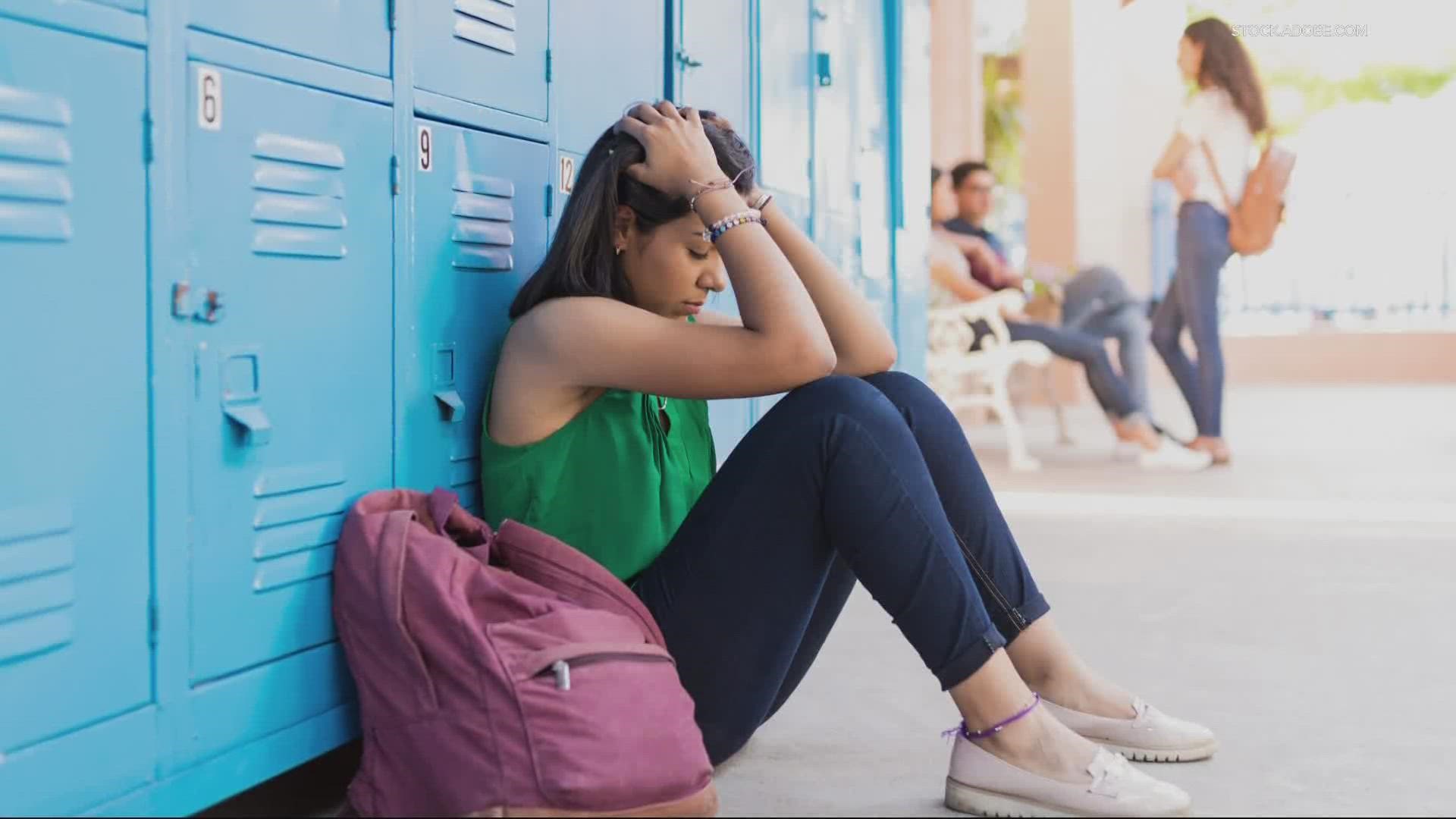PORTLAND, Ore. — In what feels like a clearing in the pandemic, we're seeing just how dark it got for many teens during the height of lockdown. Recent data suggests that high school students' mental health suffered, and many did not have a safe and comfortable home to work from.
The Centers for Disease Control and Prevention this week released findings from a recent survey. They asked nearly 8,000 high school students to share how they felt in 2020. The survey revealed abuse at home; 55% said they were cursed at or verbally insulted by an adult. More than one in 10 teens said they were physically abused and 66% said they found it difficult to complete their school work.
“I would say the study findings are pretty accurate for what we're seeing,” said Amy Baker, a social worker on special assignment in the Beaverton School District. She knows teens are suffering, but she has hope that they will recover with proper support.
“Making sure we provide as many opportunities as possible for connection, for meaningful relationship with positive adults. It's extremely powerful in mitigating the effects of trauma,” said Baker. “I think sometimes it's easy to forget that there's a corresponding science of resilience.”
The CDC said it's unclear how significant a role the lockdown played in what the survey showed — whether the abuse teens experienced was related to the pandemic or if it had been going on before the lockdown. What was clear is that not every teen felt the impacts of the pandemic equally.
Take depression, for example. The CDC said about 45% of high school students reported feeling persistently sad or hopeless, and one in five had contemplated suicide. Of gay, lesbian and bisexual teens surveyed, nearly half said they'd contemplated suicide — that's compared to 14% of heterosexual teens.
Gender showed another disparity; more than one in four girls contemplated suicide, which was twice the rate of boys.
“The statistics have always been alarming and the pandemic has just exasperated everything,” said Emily Moser, director of the YouthLine program with Lines for Life.
While COVID case numbers are dropping and kids are back in school, Moser said the CDC’s findings underline an ongoing crisis.
“I think we're not really ‘good to go’ right now,” said Moser. “It's a bigger conversation for everyone, now.”
YouthLine volunteers like Galina Simpson are having that conversation with their peers and often draw from personal experience.
“That isolation? It was brutal,” said Simpson, 18.
When Simpson talks with teens who are struggling, she has learned to “stay in the muck” with them. It’s something she hopes adults will do, too.
“Let someone tell their story and sit in the pain they're experiencing,” advised Simpson. “Being able to validate that instead of going straight into problem solving … the answer is so much more simple that people think it is. It really is to listen.”
When adults do that, Simpson promises, it means something to teens. She knows because they tell her.
“They talk about that teacher that checked in on them when they saw that they were going through a really difficult time,” said Simpson. “Or the counselor who reached out to them when they didn't know that anyone was even paying attention."

